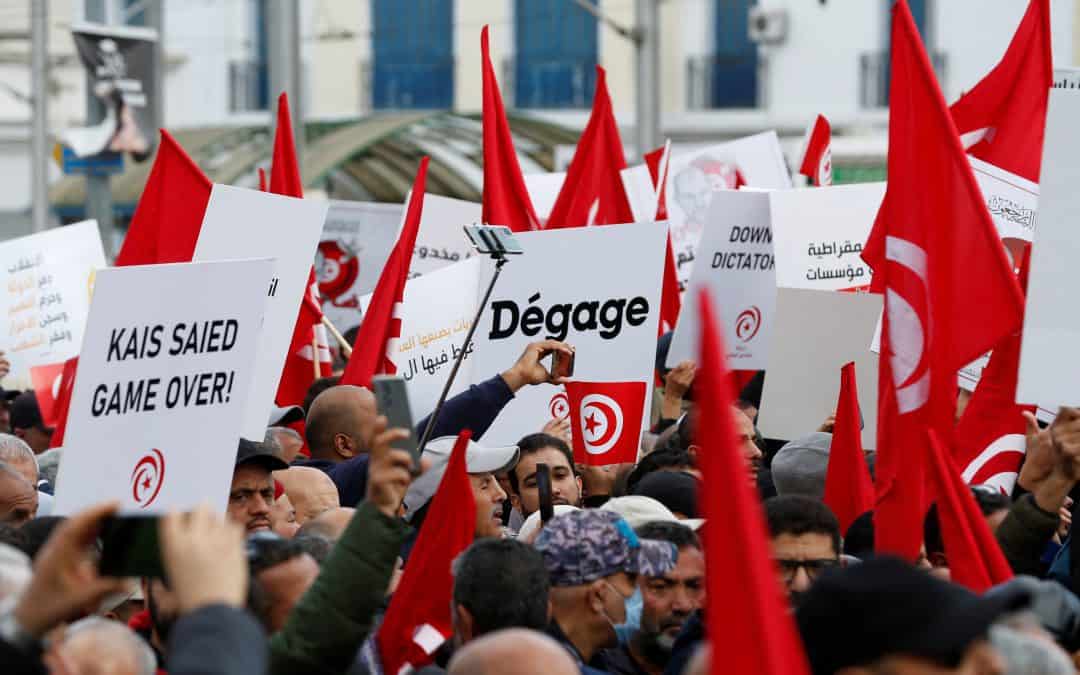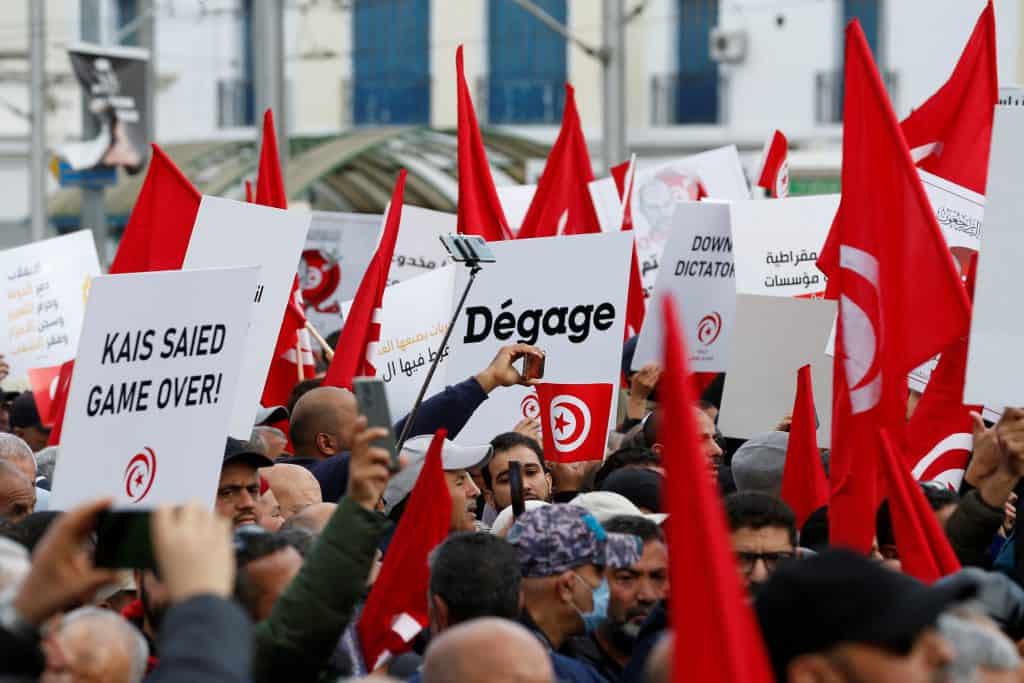
State Capture: All in the Family
In the aftermath of the Tunisian revolution in 2011, some 550 properties, 48 boats and yachts, 40 stock portfolios, 367 bank accounts, and approximately 400 enterprises were seized from deposed President Zine el-Abidine Ben Ali and his clan. The Confiscation Commission in Tunisia estimates that the total value of these assets combined – the total worth of the Ben Ali clan’s belongings – was approximately $13 billion or more than one-quarter of Tunisian GDP in 2010. By the end of 2010, around 220 firms owned by Ben Ali and his extended family had taken 21% of all private sector profits in Tunisia.
They were able to drive profits of their firms to such high levels by taking advantage of and manipulating Tunisia’s Investment Laws. Ben Ali’s relatives flocked to sectors with regulations such as: telecoms, air, maritime transport, banking and real estate. The entry restrictions to these sectors translated into greater market share, higher prices and more money for the firm’s of Ben Ali’s extended family.

Many countries use entry restrictions to serve domestic interests such as protecting consumers from poor quality goods and services or protecting growing domestic firms from unfair foreign competition. When existing regulations did not sufficiently shield the family businesses from competition, the President designed and decreed new regulations to ensure his family firms gained from these new regulations.
In Tunisia such regulations served to protect the President’s family’s business interests at the expense of the Tunisian consumers and firms who had to foot the bill. Six months after he was ousted, the President and his wife were found guilty by a Tunisian Court for embezzlement and misuse of public funds and sentenced to 35 years in prison
Beyond the central figures of Ben Ali and the Confiscation Committee, numerous key stakeholders played pivotal roles in this complex saga, shedding light on the intricate dynamics of corruption and resistance.
Key Stakeholders
- Institutions: The Tunisian legal system and judiciary played a crucial role in holding the Ben Ali clan accountable. Investigative bodies and law enforcement agencies, such as the Confiscation Commission, were instrumental in identifying, seizing, and valuing the extensive assets amassed by the former president and his family.
- Activists: Civil society and human rights activists, spurred by the revolutionary spirit, were at the forefront of exposing and condemning the corruption. Organizations like the Tunisian League for Human Rights and the National Anti-Corruption Network actively campaigned for justice, pushing the boundaries of the public discourse on corruption and accountability.
- Lawyers: Legal professionals and advocates played a critical role in navigating the complexities of the legal system to ensure that justice was served. The efforts of lawyers who represented the victims and worked towards dismantling the legal defenses erected by the Ben Ali family were indispensable.
- Politicians: Reformist politicians within Tunisia played a significant role in both exposing and combating corruption. Their efforts were essential in pushing for legal and institutional changes aimed at preventing such abuses of power in the future.
- International Community: The global response to the Tunisian revolution and subsequent revelations of corruption was instrumental. International organizations, such as the United Nations and Transparency International, provided support and scrutiny. The global community’s attention added pressure on the Tunisian government to address the corruption issue transparently.
The exposure of the extensive corruption orchestrated by Ben Ali and his family holds profound significance on multiple levels.
- Democracy and Governance: The case underscores the challenges faced by emerging democracies in establishing robust institutions capable of withstanding corruption. The scrutiny and subsequent legal actions serve as a testament to the importance of resilient legal and judicial systems in safeguarding democracy.
- Economic Implications: The magnitude of assets seized, representing over a quarter of Tunisia’s GDP in 2010, highlights the economic repercussions of unchecked corruption. This revelation prompts a critical examination of the impact corruption can have on a nation’s economic stability and growth.
- Global Anti-Corruption Efforts: The international response to the Tunisian case emphasizes the interconnectedness of the global fight against corruption. It sets a precedent for collaborative efforts between nations and organizations to combat corruption and reinforces the notion that corrupt leaders will be held accountable on the international stage.
- Civil Society Empowerment: The active role played by activists, lawyers, and other civil society actors demonstrates the power of collective action in challenging corrupt regimes. The Tunisian case serves as an inspiration for citizens globally, highlighting the role they can play in demanding accountability and transparency.
In conclusion, the exposure and prosecution of the Ben Ali clan’s corruption transcend mere historical events; they serve as a poignant lesson in the ongoing struggle for democracy, economic integrity, and global anti-corruption efforts.
Sharon Kitur (Kenya) and Ayokanmi Oyeyemi (Nigeria) are members of the Future Africa Fellowship 2021 cohort.

Recent Comments